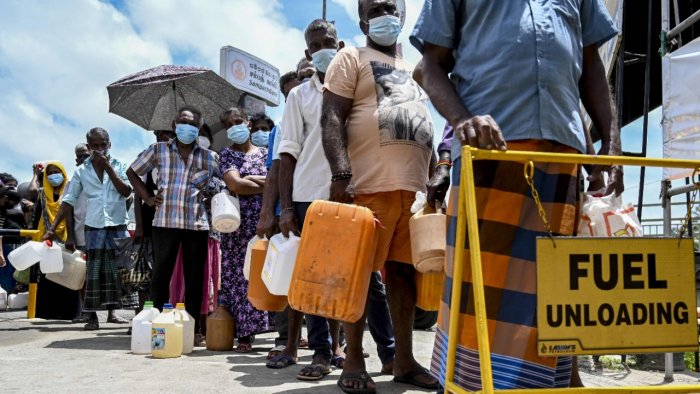
On Tuesday 2nd September, Sri Lankan President Gotabaya Rajapaksa declared an economic emergency to contain soaring inflation. The move came after a spike in food price which was caused by the steep fall in the value of the country’s currency. The emergency came into effect at midnight on Tuesday.
The emergency was declared following sharp price rise in several daily use commodities like sugar, rice, onions and potatoes. Long queues had formed outside stores due to shortages of milk powder, kerosene oil and cooking gas.
The government has said that a state of emergency was declared under the public security ordinance to prevent the hoarding of essential items, including rice and sugar. Consequently, SL government has appointed a former army general as commissioner of essential services, who will have the power to seize food stocks held by traders and retailers and regulate their prices.
Local reports from Sri Lanka show that in the past few weeks, the prices of most essential goods had skyrocketed due to the falling local currency and high global market prices driven by the COVID-19 pandemic. The Sri Lankan rupee has fallen by 7.5% against the US dollar this year. The government blames traders for hoarding.
Declining Economy
Sri Lanka’s foreign reserves fell to $2.8 billion at the end of July, from $7.5 billion in November 2019 when the government took office and the rupee has lost more than 20% of its value against the US dollar in that time.
According to the Associated Press, a huge trade deficit has been deepening the country’s financial crisis for years. SL had banned or licensed hundreds of foreign-made goods, including toothbrush handles, Venetian blinds, strawberries, vinegar, wet wipes, sugar and even a staple spice turmeric, to save on the remaining forex reserves. The nation has been under the worst import controls since the 1970s.
Tourism was the only vital source of foreign exchange earnings, but that too suffered due to the coronavirus pandemic. This year, Sri Lanka still has two more foreign debt payments of $1.5 billion each due in the next 12 months. It has already paid $1.3 billion so far. That’s in addition to local debt.
In August, the SL government failed to sell 92% of a 50 billion Sri Lankan rupee bond auction further deepening the crisis. Analysts blamed the failure on increase of ceiling rates ahead of the bond auction.
